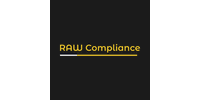This Webinar will cover two aspects -
- Opportunities and Challenges of New Technologies for AML/ CFT measures
- The Updates to the Travel Rule
Opportunities and Challenges of New Technologies for AML/ CFT measures
Innovative skills, methods, and processes, as well as innovative ways to use established technology-based processes, can help regulators, supervisors and regulated entities overcome many of the identified AML/CFT challenges. Technology can facilitate data collection, processing and analysis and help actors identify and manage money laundering and terrorist financing (ML/TF) risks more effectively and closer to real time.
FATF have recently produced the publication Opportunities and Challenges, which details outstanding operational and regulatory constraints in utilizing technology to transform its anti-money laundering and counter-terrorism funding (AML/CFT) efforts.
The Updates to the Travel Rule
The Travel Rule was introduced to make financial crimes even more difficult to carry out, and for regulators to have a better understanding of how criminals are using virtual or digital asset. The guideline requires the collection and sharing of sender and recipient data, in order to detect suspicious users and avoid fraud.
Over the past year we have seen the Travel Rule slowly being implemented, and as of 2020 the G20, including additional jurisdictions have begun to apply the travel rule in tandem with local Anti-Money Laundering (AML) laws.
However, The global money laundering and terrorist financing watchdog Financial Action Task Force (FATF) has published a second 12 month review to the travel rule published in June 2019
The review comes after FATF's June 2020 Plenary, in which they committed to continuously monitor virtual assets and virtual asset providers (VASPs), followed by a 12-month review published this year and their public consultation on the risk-based approach to virtual assets and virtual asset service providers in April 2021.
The update will hold specific implications for VASPs such as digital asset custodians and cryptocurrency exchanges, as The Travel Rule outlined in Recommendation 16, that creators and beneficiaries of digital fund transfers have an obligation to exchange descriptive information.
In this webinar we will be speaking with industry experts and discussing the key issues:
- What are the new travel rule updates?
- What are the challenges to successful adoption?
- What do I need to do to become compliant?
- What are the AML/CFT challenges?
- How can technology be better utilised?


